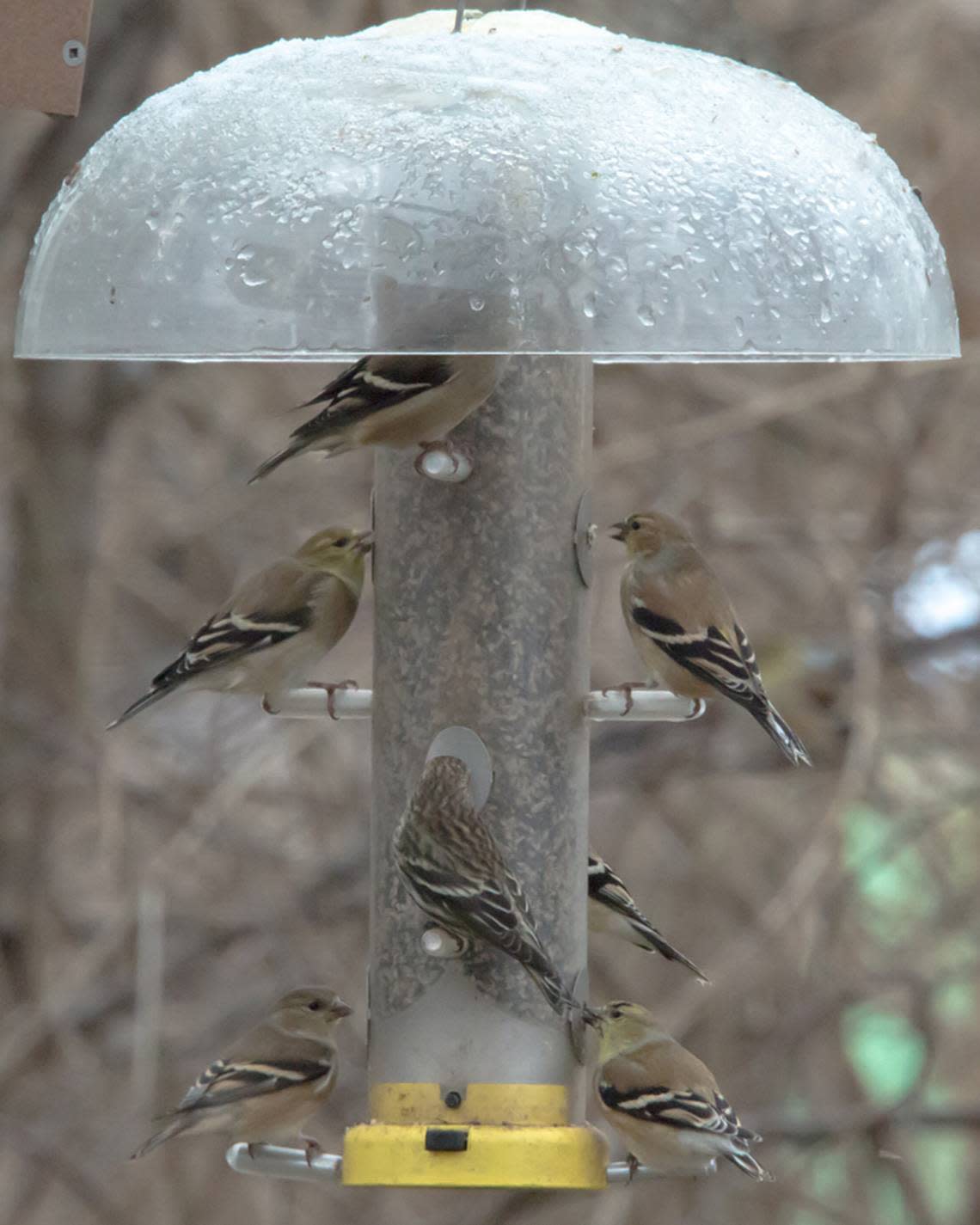This type of seed will attract a wide variety of birds to your backyard over winter
Feeding the birds is a popular, entertaining backyard hobby. Gardening and bird feeding naturally go hand in hand. While not an expert, I admit I enjoy attracting our feathered friends to the backyard. They add vibrant life, color and song to the gardens. Initially I only subsidized in the winter, but now I feed year-round.
Birds need a steady supply of food, water and shelter and often struggle to find dependable food and water sources in the winter months. Summer drought has impacted the amount and variety of native foods available. Winter survival can hinge on the bird’s ability to quickly refuel and replenish their reserves every morning after bitter cold nights.
Reliable clean water is just as important as food and sometimes can attract even more birds, especially in a dry year.
Backyard bird feeding is one way we can supplement and help them build up those fat reserves while offering an energy boost. There are many bird seed mixes on the market as various species prefer different grains. The seed with the most universal appeal to birds is the black oil sunflower seed.
If you are new to bird feeding and want to get started, black oil sunflower seed is a good choice. It attracts the greatest diversity of birds to the feeder, has a high percentage of fat and offers superior nutrition. It has a thin hull and is not a favorite of starlings or sparrows. If you feed with a mixture of seeds, make sure black oil is one of the main ingredients. White proso millet is the second most popular seed at the feeding stations.
As you become more interested in bird feeding, you may want to use a variety of feeders and locations, each stocked with a different seed or grain. Different feeders appeal to different bird species, as do different foods. Black oil sunflower seeds and safflower are favorites of cardinals, especially when offered on a tray or platform feeder. Black striped sunflower seeds are preferred by titmice and blue jays. Gray striped sunflower seeds are less likely to be consumed by as many birds due to the tough shell and energy required to access the “meat” or heart inside.

White or red proso millet is favored by juncos, mourning doves and sparrows. Peanut kernels are loved by many species, including blue jays and nuthatches, and are extremely high in fat. Niger thistle seed or fine sunflower chips are often the choice of finches. Suet — a mixture of animal fat, seeds and sometimes fruit — is great for active birds like woodpeckers, chickadees and nuthatches. It is a fantastic energy source, especially in cold winter weather. Cracked corn can be used but with caution . It is not as desirable and may attract uninvited guests such as animals and starlings.
Bird seed is not inexpensive. Lower priced mixes are on the market but often contain a high percentage of filler ingredients like milo or grain sorghum, a BB-sized orange or white grain seed. Few common backyard birds prefer these seeds. You will attract birds using this type of mix but expect more waste. The birds kick the milo out of the feeder as they search for the more desirable seeds.
Hulled cracked sunflower seeds — also known as sunflower hearts, chips or fines — are one of the best universal feeds. These cracked sunflower seeds are a favorite of all popular backyard birds. The advantage is that the hull, or outer shell covering, has been removed. This reduces the buildup of excess waste under your feeder. The drawback is this seed can initially appear more expensive, but remember that approximately 30% of sunflower seeds in the shell is waste and not edible.
One challenge of feeding birds can be the uninvited dinner guests, mainly squirrels. They can quickly destroy a feeder or consume the contents.
Squirrel-proof feeders are available to help deter feeding. Most work with spring weights or weight sensitivity. When the squirrel jumps on the feeder, the openings close and deny access. Bird seed coated with hot pepper is also effective. Birds cannot taste the spice while squirrels can and are not fans. You can also hang feeders from pole systems with baffles rather than trees to discourage squirrels.
Whichever variety of feed you choose, you are sure to enjoy the sights, sounds and beauty of birds in your garden.
Dennis Patton is a horticulture agent with Kansas State University Research and Extension. Have a question for him or other university extension experts? Email them to garden.help@jocogov.org.
